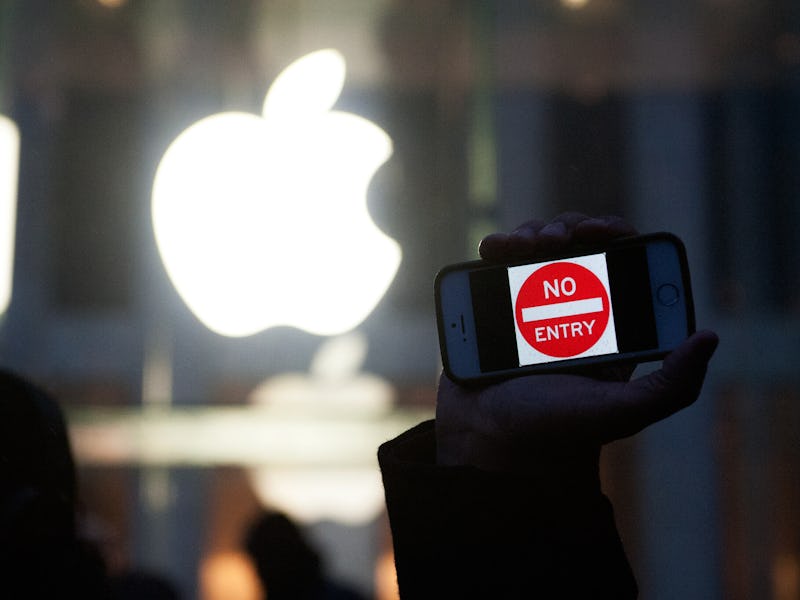There’s a Movement to Stop Apple from Using This Camera Tool
Shouting into the void never felt so good.

Apple has patented a tool that could allow police departments, concert organizers, and others to prevent your iPhone’s camera from operating.
Now there’s a petition meant to dissuade Apple from releasing that tech. “Sign this petition to send a message to Apple,” organizer Julie Mastrine writes. “Don’t release technology that would allow third parties to remotely disable our iPhone cameras!” Thousands have endorsed that message.
The technology would allow for the disabling of iPhone cameras by using special infrared sensors on a new iPhone. “An infrared emitter can be located in areas where picture or video capture is prohibited,” Apple says in the patent. “An electronic device can then receive the infrared signals, decode the data and temporarily disable the device’s recording function based on the command.”
Such a feature would finally stop people from recording concerts, standing in someone’s way at a museum, or otherwise being a nuisance with an iPhone. (Presumably this tech could be built into the iPad, too, so the even larger devices would stop being used in public.)
Also annoying.
But it could also be used by police who want to stop citizens from recording them. Given how important phone cameras and streaming platforms have become that could pose a real problem for iPhone owners who need to share their story without having to worry about police interference.
“The problem is also a local issue,” writes ACLU of California technology and civil liberties policy director Nicole Ozer. “If law enforcement gets a hold of this technology, it could be used to prevent individuals from recording traffic stops, arrests, and other interactions between law enforcement and the public.”
This is especially worrisome given that some police departments have destroyed evidence that shows their wrongdoing. Being able to use the phone in their pockets to document evidence that isn’t stored by the police departments themselves is important for individual rights.
Here’s the rub. First, a company patenting a new technology is no guarantee that it plans to ever release it. Many companies patent anything that comes tumbling out of their employees’ heads just in case they want to do something with the idea later, with no intention of incorporating the design into their products in the near term. Receiving this patent doesn’t signal Apple’s intent to release this tool.
Second, the most valuable company in the world isn’t going to pay attention to a few thousand signatures to an online petition. That’s not how Apple works. It thinks up new products, develops them, and then waits to see how the public reacts. Tim Cook and Jony Ive don’t particularly care about what you think Apple should do with its products or patents.
So, yes, this patent gives iPhone owners something to worry about. But until Apple says that it’s going to incorporate this feature into one of its products, the consumer backlash is like shouting into the void: It might make you feel better, but in the end the only thing that will change is how much your throat hurts. Pretending otherwise is simply delusional and, quite frankly, self-aggrandizing.